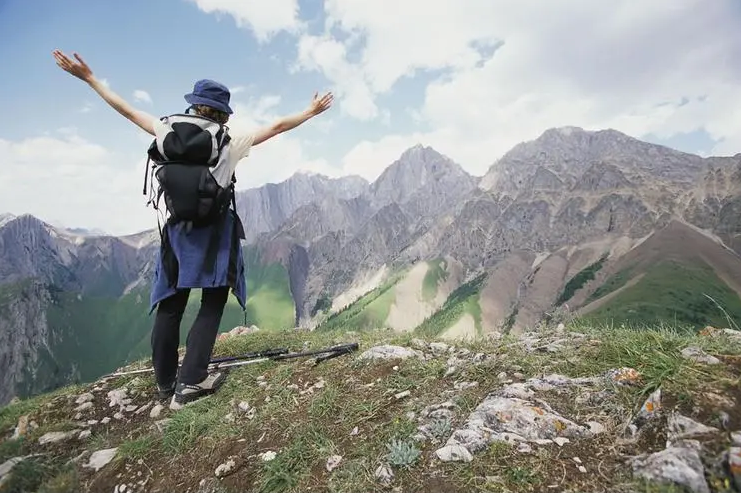The terms “trek” and “hike” are often used interchangeably, but they have distinct differences. Here’s a detailed comparison to help you understand these two activities better:
Key Differences Between Hiking and Trekking
1. Duration
- Hiking: Typically shorter in duration, hikes can be completed within a day or a weekend. Multi-day hikes do exist but are less common.
- Trekking: Involves longer journeys, often spanning several days or even weeks. Trekkers typically camp overnight and continue their journey the next day.
2. Difficulty and Terrain
- Hiking: Generally ranges from easy to moderate difficulty. Hikes are usually on well-marked trails that have been purposefully cleared for hikers, making navigation easier.
- Trekking: More challenging and immersive, often taking place in remote, wilderness areas. Trekking can involve steep ascents and descents, rugged terrain, and sometimes high-altitude environments, which require acclimatization.
3. Equipment and Preparation
- Hiking: Requires basic equipment like sturdy footwear, comfortable clothing, and a daypack. Hikers might also carry snacks and water.
- Trekking: Requires specialized gear such as trekking poles, backpacks, tents, sleeping bags, cooking equipment, and sometimes even oxygen tanks for high-altitude treks. Trekkers need to be more prepared both physically and mentally.
4. Cost
- Hiking: Generally lower cost as it requires minimal equipment and preparation. Many popular hiking trails are free or have a small entrance fee.
- Trekking: Can be more expensive due to the need for specialized equipment, permits, and sometimes hiring guides. The cost also includes provisions for multiple days.
5. Accommodation
- Hiking: Often involves returning home or staying in lodges and cabins. Some longer hikes might include overnight camping, but this is less common.
- Trekking: Usually involves camping in tents each night. Trekkers carry all necessary gear with them and set up camp as they travel.
6. Goals and Objectives
- Hiking: Often recreational with the goal of enjoying scenic nature, completing a trail, or achieving a personal fitness goal.
- Trekking: More goal-oriented towards reaching a remote destination. The journey itself is a significant part of the experience, often involving cultural and natural exploration.
Summary Table
| Aspect | Hiking | Trekking |
|---|---|---|
| Duration | Day or weekend | Several days to weeks |
| Difficulty | Easy to moderate | Challenging, with rugged and varied terrain |
| Equipment | Basic | Specialized (tents, cooking gear, etc.) |
| Cost | Lower | Higher (permits, equipment, guides) |
| Accommodation | Lodges/cabins or home | Camping in tents |
| Goals | Recreational, fitness | Destination-oriented, cultural exploration |
Block Quote
“Treks can cover long distances, cross multiple terrains, and require specialized equipment such as tents, sleeping bags, and cooking gear. Trekking often involves altitude, as many popular trekking routes are located in high-altitude regions such as the Himalayas or the Andes. Trekkers need to be physically fit, mentally prepared, and have some level of experience in outdoor activities”
.
Understanding these differences can help you better prepare for your next adventure, ensuring that you have the right expectations, preparation, and equipment for your trip.
